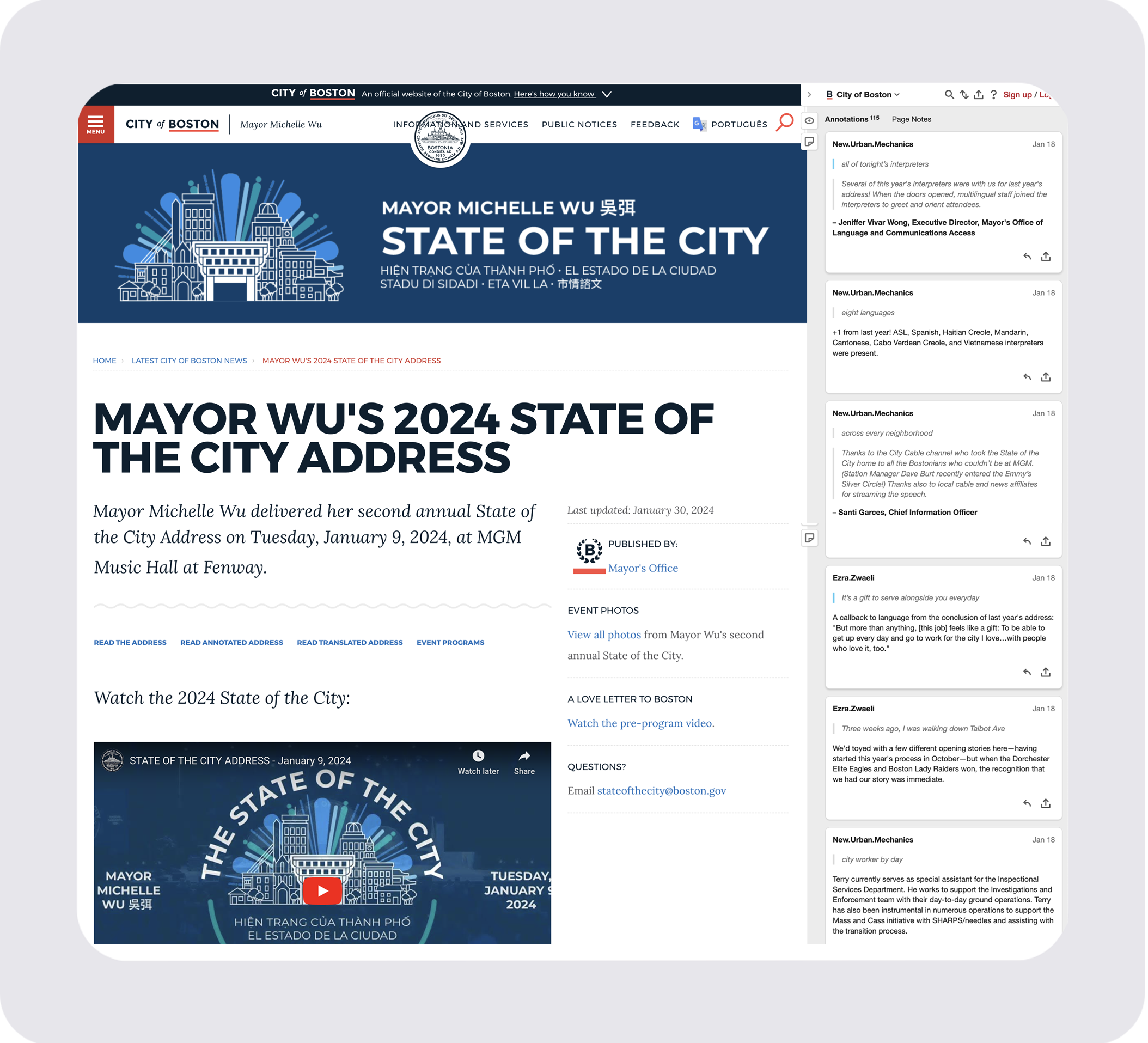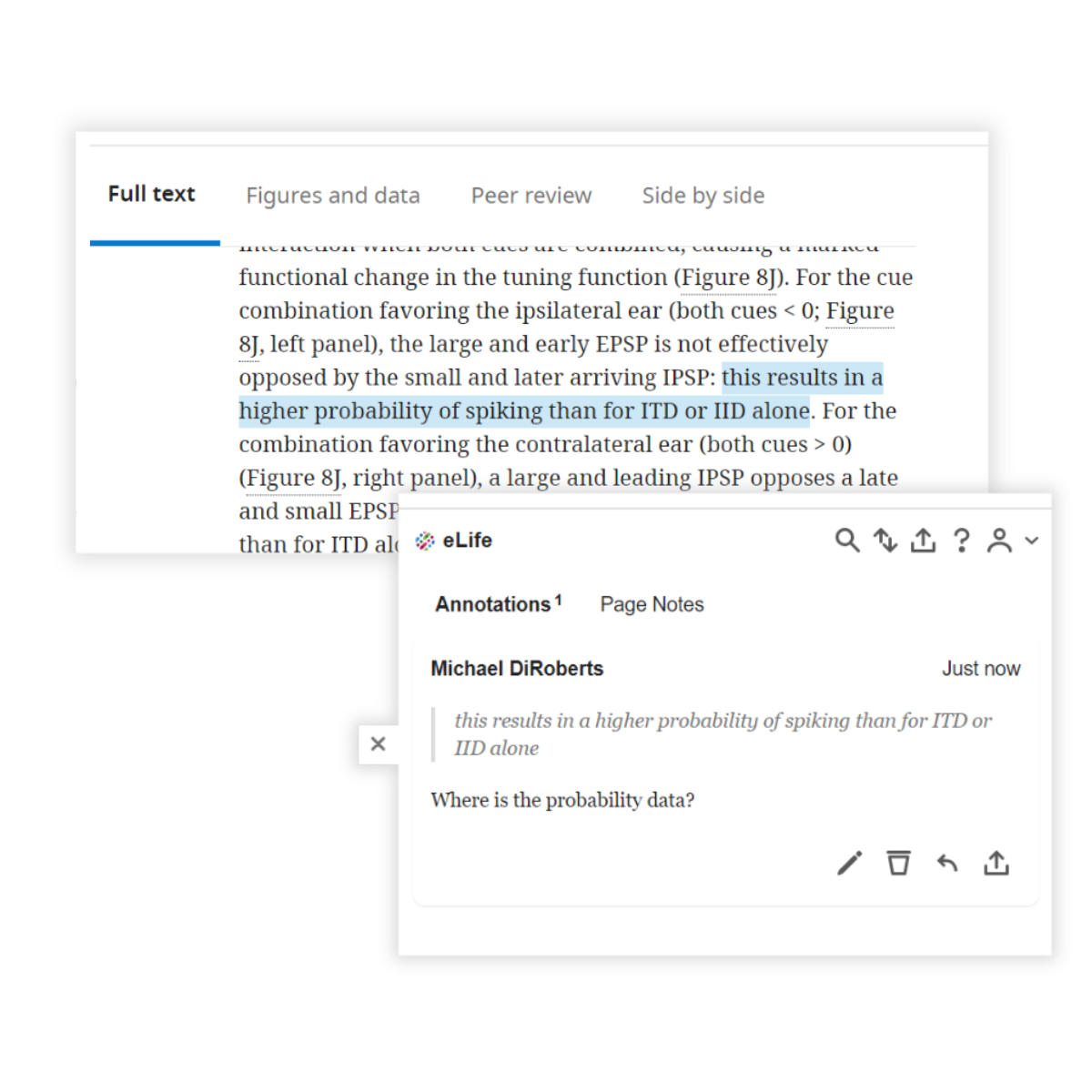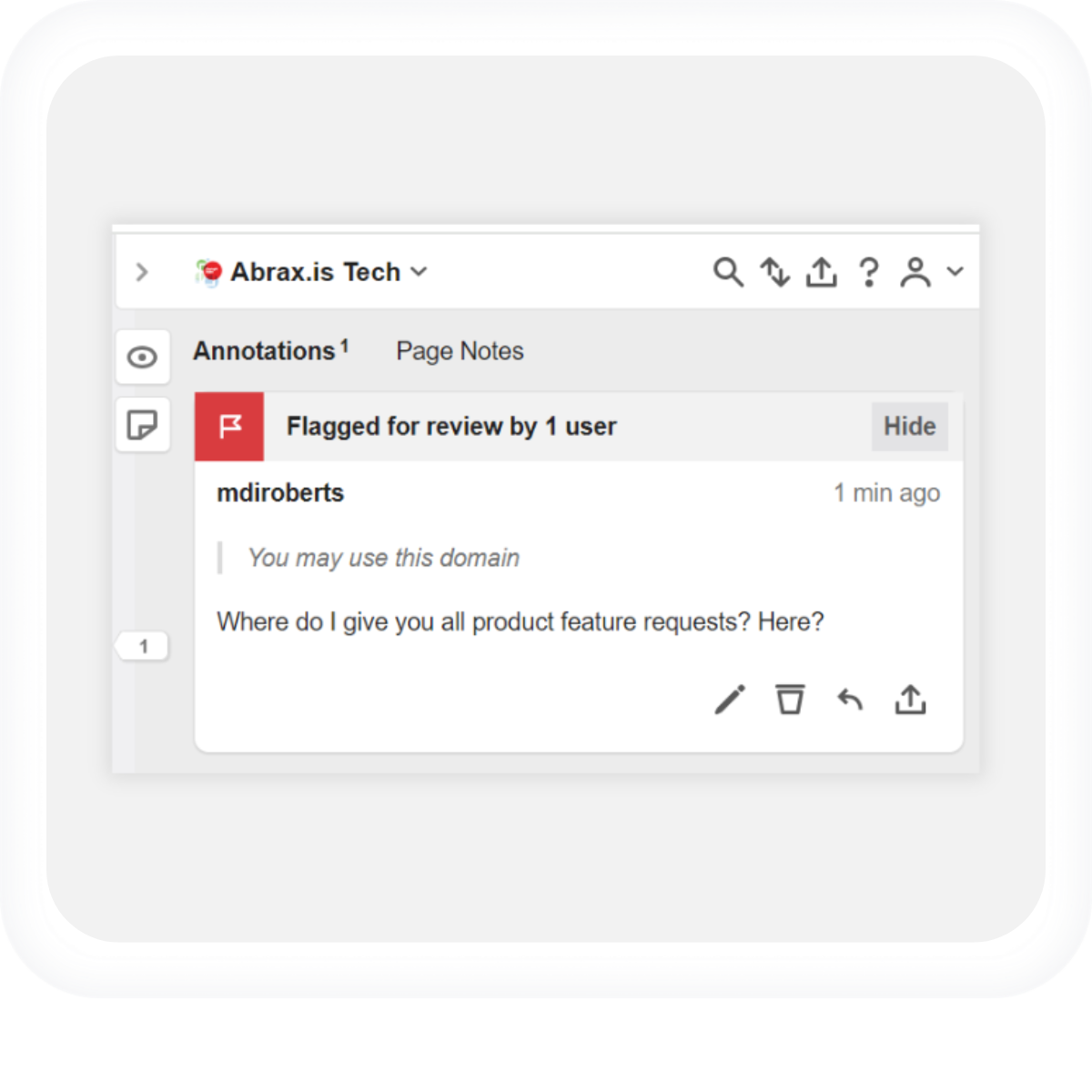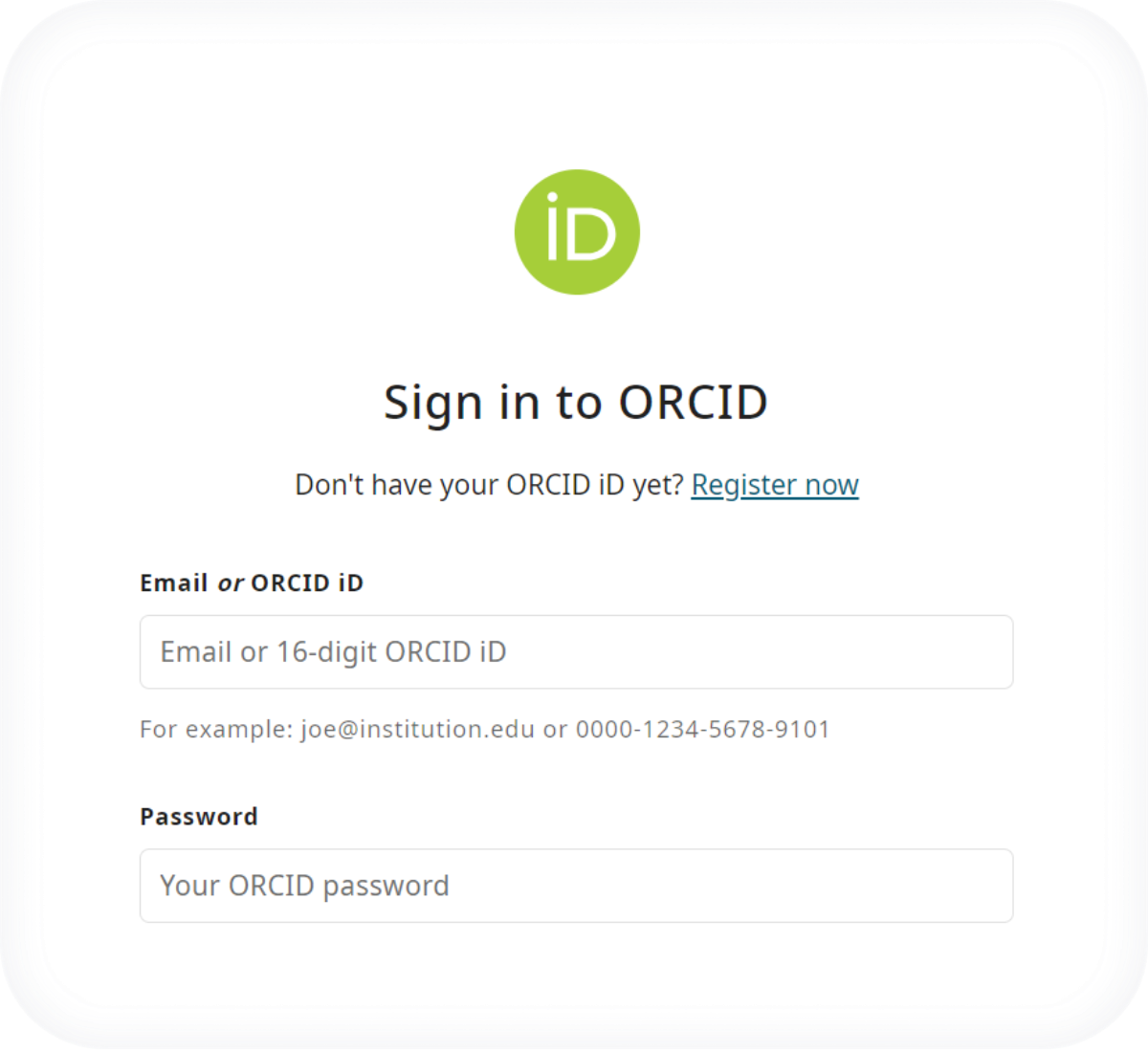
Collaborate and Communicate with Ease
Unlock the power of annotations with Publisher Groups. Whether you want to leave annotations over your content for your followers to see or keep the conversation within your team, you have the choice. Facilitate dynamic discussions and enhance collaboration effortlessly.

Your Brand, Your Interface
Make your mark with a branded interface tailored to your company. Publisher Groups ensures your annotations and collaboration tools seamlessly integrate into your corporate identity, enhancing your presence.

Total Control Over Your Annotations
Maintain complete control over the content and discussions. With the ability to moderate annotations and delete unwanted comments, you can ensure the integrity and relevance of the conversation.

Integration with Third-Party Accounts
Integrate effortlessly with third-party accounts and streamline your workflow. Hypothesis Business Annotator works with your existing tools and platforms, providing a smooth and efficient user experience.

Enhanced Security and Control
Protect your data and ensure secure collaboration with enhanced security features. Publisher Groups offers robust control over the annotations made, giving you peace of mind and confidence in the privacy of your discussions.
Publisher Groups compared to the Hypothesis Web App:
| Publisher Groups | Web App | |
| Annotate anything online | X | X |
| Public annotations | X | X |
| Private annotations | X | X |
| No storage limits | X | X |
| Control who has access | X | |
| Company moderated annotations | X | |
| Branded | X | |
| Unique login | X | |
| Know who has created an account | X | |
| Increased security | X | |
| Enhanced company control | X |
Don’t just take our word for it
Discover how the City of Boston leveraged Publisher Groups to enrich their State of the City address with valuable insights and resources for their citizens by using annotations.
Integration with Third Party Accounts
Our Publisher Groups also have the capability to integrate with your third party accounts. Connect with a team member to learn more about this integration.
Get Started
Transform your business with Publisher Groups. Increase collaboration, have secure conversations, and control the dialogue. Start your journey towards better collaboration and communication today. Complete the form below to learn more:




